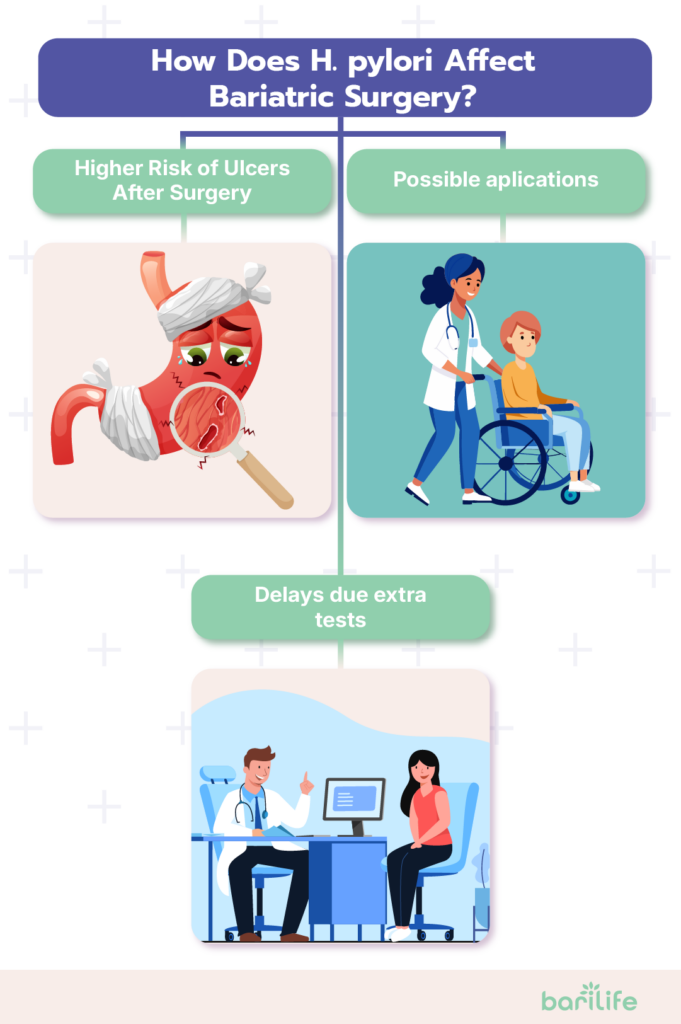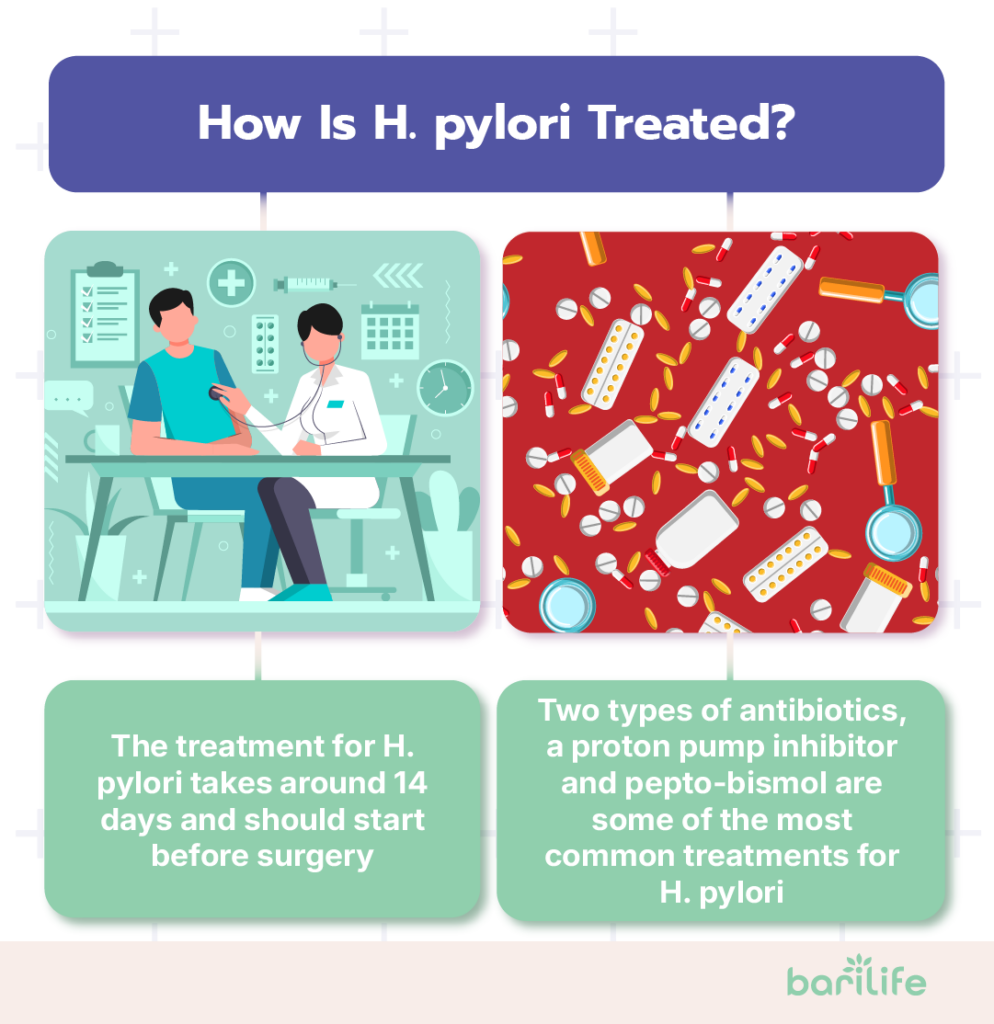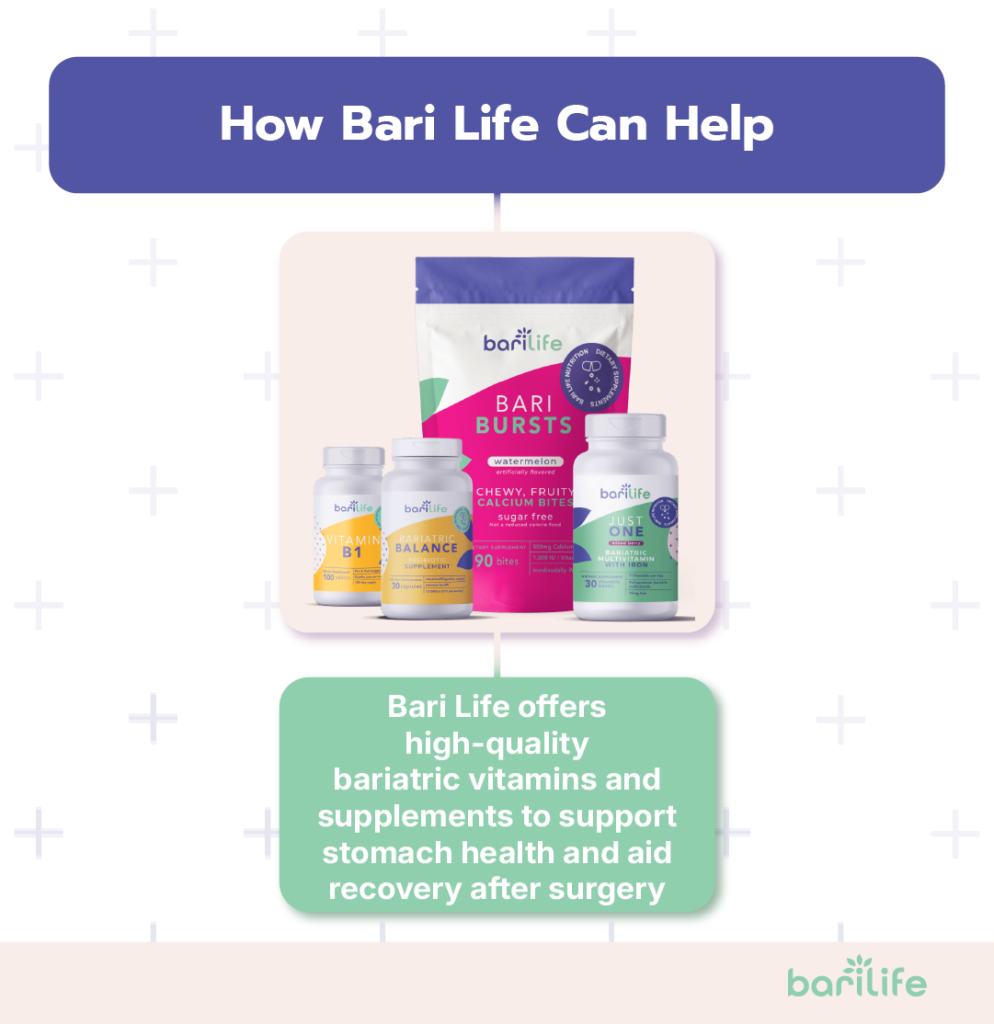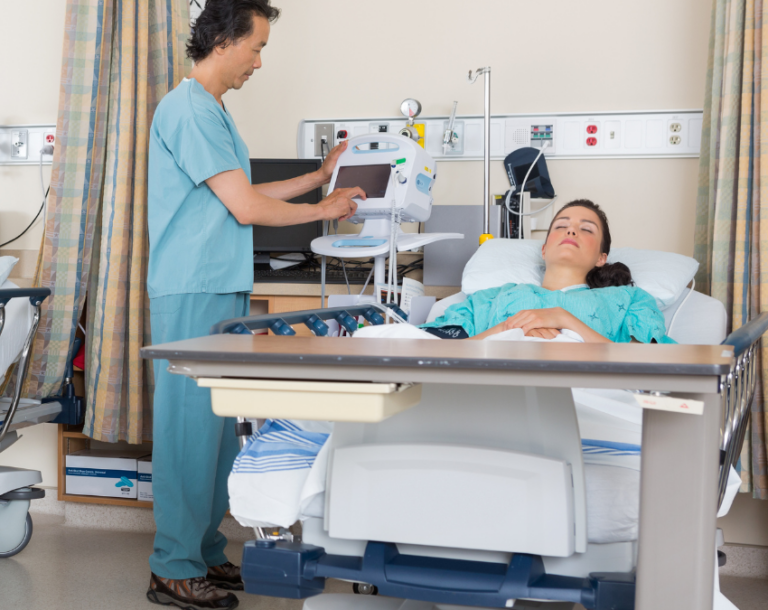Key Takeaways
- H. pylori infection doesn’t automatically disqualify you from bariatric surgery, but treating it beforehand can reduce the risk of complications like ulcers and changes in weight loss.
- While some studies suggest that H. pylori increases the risk of post-surgical ulcers, others indicate that surgical factors play a bigger role in ulcer formation.
- Preoperative H. pylori screening is still debated, but eradication is generally recommended to improve post-surgical outcomes and lower the risk of gastric complications.
- If you are considering bariatric surgery requirements, one important step is screening for potential risk factors like H. pylori infection to ensure the best possible outcome.
Having an H. Pylori infection doesn’t necessarily mean you can’t have the procedure, but you may need to be treated first. H. pylori is a common bacterium that lives in the stomach lining. While many people don’t even know they have it, it can sometimes cause problems like ulcers, stomach pain, and even an increased risk of complications after surgery.
Because of these potential complications, many healthcare providers recommend testing for H. pylori before surgery. If you test positive, the good news is that treatment is simple and effective. It usually consists of a combination of antibiotics and medications to reduce stomach acid. Getting rid of H. pylori before surgery can lower your risk of complications and set you up for the best possible results.
In this article, we discuss what H. pylori is, how it affects bariatric surgery, how to test for it, and what you can do to treat it if necessary.
Table of Contents
What Is H. pylori?

H. pylori is short for Helicobacter pylori. It is a tiny bacterium that likes to hang out in your stomach lining. It’s more common than you might think—about two-thirds of people in the world have it. The tricky part is many people don’t even know they have it because it doesn’t always cause symptoms.
But when it does cause problems, it can lead to things like:
- Stomach pain
- Heartburn
- Indigestion
- Peptic ulcers
- Stomach cancer
Most people pick up this bacterium in childhood, often from contaminated food, water, or close contact with someone who’s already infected. In places with poor sanitation, it’s even more common.
One of the main reasons H. pylori can be so problematic is that it can survive in the harsh, acidic environment of your stomach. It does this by producing an enzyme called urease, which neutralizes stomach acid around it, making it easier for the bacteria to thrive. Over time, this can weaken the protective lining of your stomach, leading to issues like ulcers.
How Does H. pylori Affect Bariatric Surgery?
More research is needed on this topic, and the results are sometimes conflicting. If you have an H. Pylori infection, your surgeon will discuss a plan for you, but here are a few important things to keep in mind.
Higher Risk of Ulcers After Surgery
Some types of weight loss surgery—like gastric bypass—change the way your stomach works. If you have H. pylori, your chances of developing ulcers after surgery increase.
Marginal ulcers, which form at the connection between the stomach and intestines after surgery, are more common in people with H. pylori. These ulcers can cause pain, nausea, and, in severe cases, bleeding or perforation.
Possible Complications
One study suggests that complications after surgery among people with H. Pyloric infections and those without the infection are similar. However, weight loss may be slower in people with an H. Pylori infection.
Additionally, if you’re wondering what can disqualify you from bariatric surgery, factors like uncontrolled medical conditions, severe gastrointestinal diseases, and untreated infections—including H. pylori—can be potential concerns.

Should Everyone Get Tested?
Here’s where things get a little controversial. Some healthcare providers believe everyone getting bariatric surgery should be tested for H. pylori to lower the risk of complications. Others argue that routine testing isn’t necessary for every single person and should depend on individual risk factors.
Some factors that might increase your risk of complications include:
- A history of ulcers
- Chronic stomach pain or acid reflux
- Living in an area where H. pylori is common
- A personal or family history of stomach cancer
How Do You Get Tested for H. pylori?
If your healthcare provider wants to check for H. pylori, they’ll usually recommend one of these simple tests:
- Urea breath test: You breathe into a bag after drinking a special liquid. If H. pylori is there, the test can detect it.
- Blood test: This looks for H. pylori antibodies but isn’t always accurate.
- Stool test: Checks for H. pylori proteins in your poop.
- Endoscopy with biopsy: A small camera goes into your stomach to check for infection. This is usually done if you already have symptoms like ulcers.
If you test positive, don’t panic! There’s a straightforward way to treat it before your surgery.
How Is H. pylori Treated?
Getting rid of H. pylori isn’t too difficult, but it does require some commitment. The usual treatment involves a combination of antibiotics and a medication called a proton pump inhibitor (PPI), which helps lower stomach acid. The treatment lasts about 14 days.
This treatment is often called “triple therapy” or “quadruple therapy,” depending on the combination of medications used. It typically includes:
- Two different antibiotics to kill the bacteria
- A proton pump inhibitor (PPI) to reduce stomach acid and help heal ulcers
- Bismuth, an ingredient found in Pepto-Bismol, further attacks the bacteria

Treatment should ideally start before surgery. This can help lower your risk of ulcers and other stomach problems down the road.
After finishing treatment, you may need another breath or stool test to make sure the infection is completely cleared before proceeding with surgery.
Can H. Pylori Come Back After Surgery?
Yes, but it’s not very common—especially if you live in a place with good sanitation and hygiene practices. However, there are a few things to keep in mind after surgery:
- Reinfection is possible, but it’s rare in developed countries.
- Bariatric surgery changes your stomach, making future H. pylori infections harder to detect and treat.
- Get regular check-ups and let your health provider know if you ever have stomach pain or digestive issues after surgery so they can check for reinfection.
Since bariatric surgery alters your digestive system, detecting and treating future infections can be more complicated. That’s why it’s so important to get treated before surgery and follow up with your healthcare providers if any symptoms return.
Conclusion
If you have H. pylori, don’t let it scare you away from bariatric surgery. The key is to catch it early, treat it if needed, and have regular follow-ups with your health provider. Most people who get treated for H. pylori before surgery have great results and go on to lose weight successfully without extra complications.
So, if your healthcare provider recommends getting tested, it’s worth doing. A little extra care now can help ensure that your weight loss journey goes as smoothly as possible!
How Bari Life Can Help
Bari Life offers high-quality bariatric vitamins and supplements designed to support stomach health and aid recovery after surgery, reducing the risk of ulcers and other complications.
Additionally, Bari Life provides liquid bariatric vitamin options for patients who have difficulty swallowing pills. Their easy-to-digest formulas help ensure optimal nutrient absorption, which is especially important for patients undergoing gastric bypass or sleeve gastrectomy.

With expert guidance and tailored nutrition plans, Bari Life helps bariatric patients maintain long-term digestive health and achieve the best possible post-surgery outcomes.
Check out the Bari Life products today!
If you want to learn more, why not check out these articles below:
- BMI For Bariatric Surgery
- How Quickly Can I Get Bariatric Surgery?
- How To Get Bariatric Surgery Fast?
- How To Pass a Bariatric Psych Evaluation?
- Am I a Candidate For Bariatric Surgery?
- When is Bariatric Surgery Recommended?
- Is Bariatric Surgery Right For Me?
- What is a Bariatric Patient?
References
Helicobacter pylori infection. (2024). MedlinePlus.
Observational Cohort Study. Journal of Clinical Medicine.
Ramaswamy, A., et al. (2004). Early Effects of Helicobacter pylori Infection in Patients Undergoing Bariatric Surgery. Arch Surg.



What are your tips and tricks to post-bariatric success?